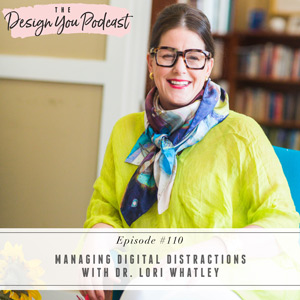
We are all using digital devices more than ever right now, but do we really know how it’s affecting us? Clinical psychologist Dr. Lori Whatley joins us this week to explain the effects of excess digital device usage, and shows us how we can better manage the interaction with our devices in order to live a calmer and happier life.
This time away from our friends and families is becoming increasingly difficult, and many of us are missing in-person interactions such as hugs, touch, and eye contact. We’ve disconnected from people, and while technology is fantastic in that it enables us to connect in a range of ways online, the increase in engagement with our devices is also bringing a range of issues. Headaches, lethargy, problems sleeping… there’s a lot to contend with right now.
Join us this week to find out how exactly our devices are affecting us, and why we must create boundaries if we want to have a healthy relationship with technology. Lori explains why so many of us have become addicted without even realizing it, and why it’s important that we take control of our technology rather than letting it control us. That way, when the time finally comes to reconnect in person, we’ll be less engaged with our devices and more present with our loved ones!
If you want to keep this conversation going, you have to join my free Design You Podcast community on Facebook. We have great conversations over there about the podcast episodes and our podcast guests are in there too! So head on over and I’ll see you there!





